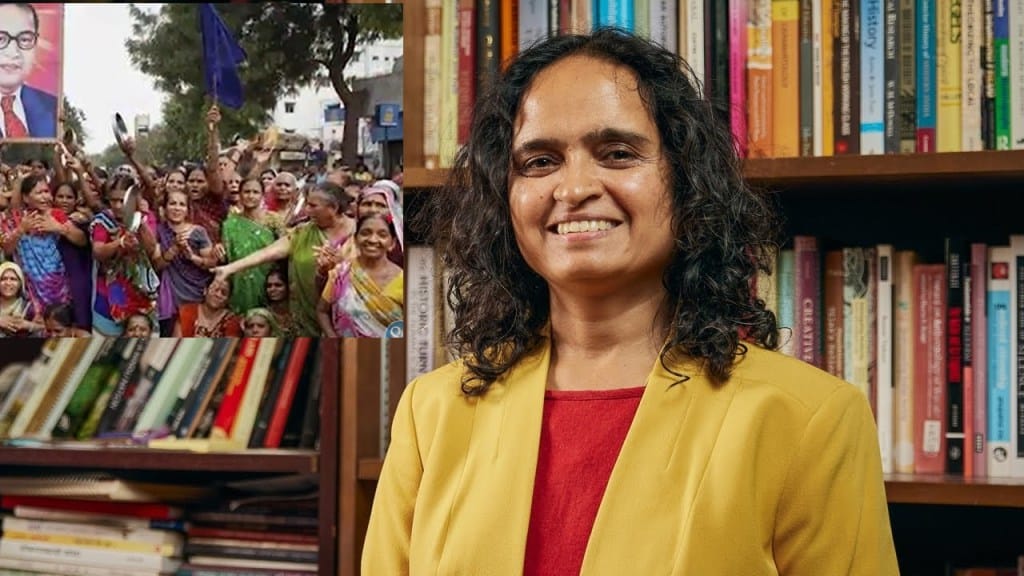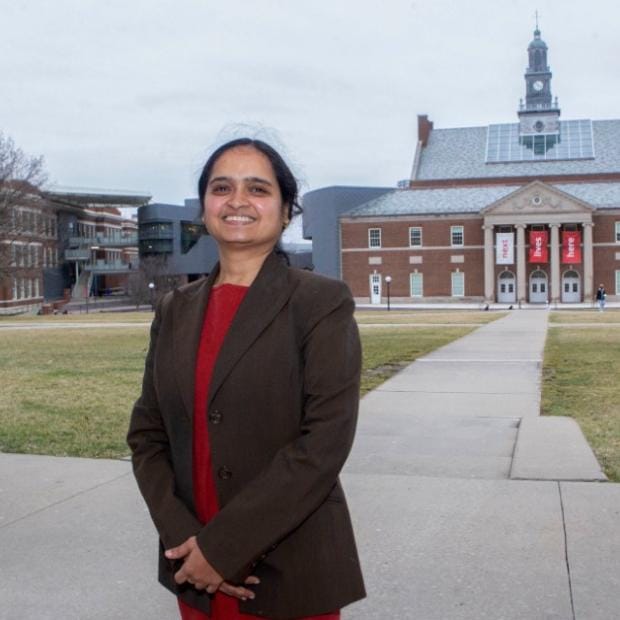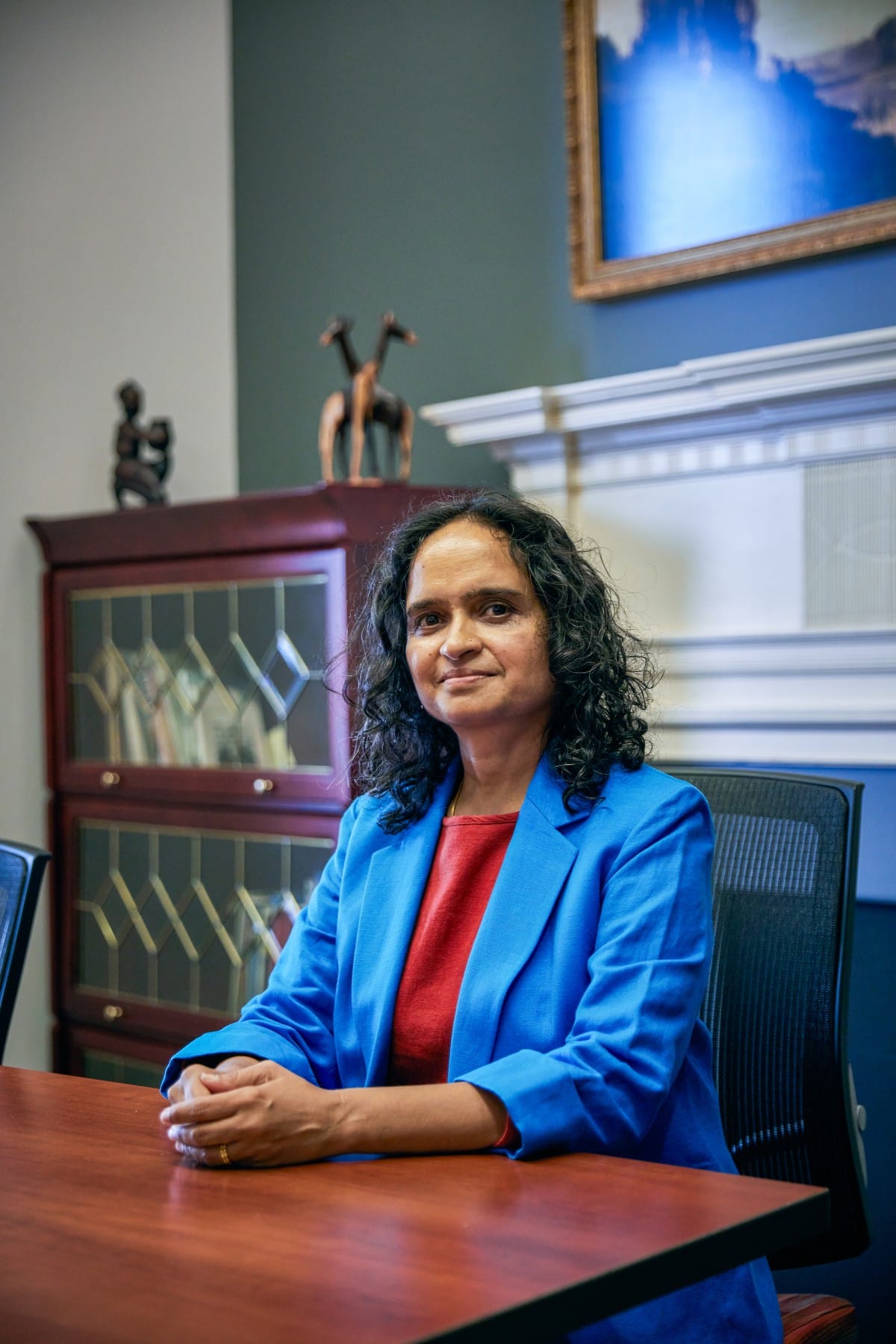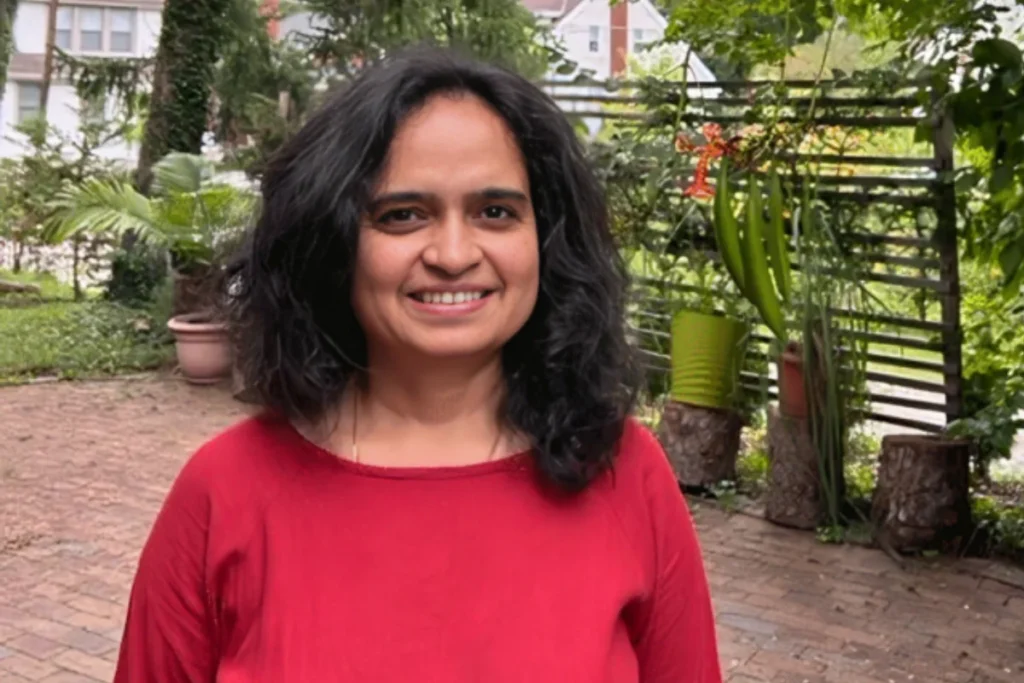Shailaja D. Paik has emerged as a leading figure in the fields of history, academia, and activism, renowned for her pioneering work on Dalit women’s history. Recently honoured with the prestigious MacArthur Fellowship, Paik has been recognised for her significant contributions to understanding the intersections of caste, gender, and sexuality. As the first Dalit woman to receive this esteemed grant, which includes a substantial award of ₹67 lacs, her achievement marks a momentous milestone in both her career and the broader struggle for Dalit women’s rights.
Shailaja Paik’s early life and education
Born in Pohegaon, a small village in Maharashtra, Shailaja Paik’s early life was shaped by adversity. Her family relocated to a city in search of better opportunities, where her father worked during the day and attended night school. Socioeconomic struggles, largely driven by caste-based discrimination, were a defining feature of Paik’s upbringing. She has often reflected on her experiences of growing up in a slum, sharing a small room with her mother and three sisters. Despite these challenges, the support and encouragement from her parents fueled her drive for education and personal success.
Socioeconomic struggles, largely driven by caste-based discrimination, were a defining feature of Paik’s upbringing. She has often reflected on her experiences of growing up in a slum, sharing a small room with her mother and three sisters.
Paik’s father passed away in 1996, pushing her to assume greater responsibility for supporting her family. Undeterred, she pursued higher education with determination, earning a BA in 1994 and an MA in 1996 from the University of Pune. She went on to complete a PhD in 2007 from the University of Warwick. Paik’s academic journey continued with positions at several prestigious institutions, including a visiting assistant professorship at Union College and a postdoctoral associate role at Yale University.
Since 2010, she has been a professor at the University of Cincinnati, where she currently holds the title of Charles Phelps Taft Distinguished Research Professor of History and is affiliated with the Women’s, Gender, and Sexuality Studies, and Asian Studies programs.
Throughout her career, Paik has faced what she describes as “double discrimination,” referring to the intersecting biases based on both her caste and gender. These experiences, however, have only strengthened her resolve to fight for proper representation and rights for Dalit women, including those historically marginalised within society, such as tamasha performers.
Paik’s work and contributions
Central to Paik’s work is the liberation of Dalit women, with a focus on reclaiming the dignity that has long been denied to them. Her recent book, The Vulgarity of Caste, examines how certain women are often viewed as indecent, a reflection of the broader stigmatisation of Dalit women in India. Through her work, Paik explores the deeply entrenched systems of power and oppression that continue to marginalise Dalit women, revealing how caste and patriarchy intersect to deny them fundamental rights and opportunities.
Paik’s research is not just an academic pursuit; it is a powerful tool for social change.
Paik’s research is not just an academic pursuit; it is a powerful tool for social change. Her work challenges traditional narratives that perpetuate caste-based discrimination, even as India advances toward modernisation. In a recent interview with NPR, she built a complete archive of the Tamasha women who were completely erased from the Indian narrative.
By bringing the lived experiences of Dalit women to the forefront, Paik highlights the ongoing struggle for justice and equality, urging Indian feminism and broader social movements to centre the voices of those most affected by these intersecting forms of oppression.
Paik’s road to recognition and advocacy
Despite her numerous achievements, Paik’s journey has been marked by the ongoing challenges posed by a society that continues to uphold caste hierarchies. Her success, however, has positioned her as a leading voice in reshaping discussions around caste, gender, and social justice, both within India and internationally.
Shailaja Paik’s recognition with the MacArthur Fellowship stands as a testament to her unwavering commitment to exposing and challenging the inequalities faced by Dalit women. Her achievements are in the step towards a liberated India. Through her scholarship and activism, Paik is paving the way for future generations, ensuring that the stories and struggles of Dalit women are not only heard but also acknowledged as central to the pursuit of justice and dignity.
‘‘Dalit’ has the force to capture the existential plight of the underrepresented, illuminate the revolutionary potential of the underserved, and connect with marginalised communities of the world full of resilience, empathy, and love.‘ Shailaja Paik told the Wire.
By amplifying the voices of Dalit women and supporting grassroots activism, a more equitable society can be built—one that honours the contributions of all its members while addressing the systemic injustices that persist.
As Shailaja Paik’s remarkable accomplishments are celebrated, it is important to recognise that her achievements have come despite the barriers imposed by Indian society, not because of it. The path to equality and justice is long and arduous, requiring collective effort and solidarity. By amplifying the voices of Dalit women and supporting grassroots activism, a more equitable society can be built—one that honours the contributions of all its members while addressing the systemic injustices that persist.
In acknowledging both the achievements and ongoing challenges faced by Dalit women, a deeper understanding of their journey emerges, fostering a more inclusive environment where every voice is heard, valued, and respected.
Added Citations
- Paik, Shailaja. “The Rise of New Dalit Women in Indian Historiography.” History Compass, vol. 16, no. 10, 2018, p. e12491.
- Gharib, Malaka. “She Fights for the Rights of Dalit Women in India. Now, She’s a MacArthur ‘Genius.'” NPR, 1 Oct. 2024, https://www.npr.org/sections/goats-and-soda/2024/10/01/g-s1-25437/macarthur-genius-grant-caste-dalit-india-shailaja-paik. Accessed 11 Oct. 2024.
About the author(s)
Asmita Seth is a queer feminist writer committed to advocating for marginalized communities. Writing since a young age, she aims to inspire hope and drive change much like the writers who inspired her. Asmita's work explores themes of gender research, media and mental health.









This statement about Shailaja Paik is thought-provoking and evokes strong emotions. Celebrating her achievements while questioning her place in the country reflects a complex dialogue about values and recognition. It’s crucial to consider the contributions of individuals who strive for positive change, regardless of the broader societal context. Such discussions can spark meaningful conversations about merit and appreciation!
Thanks Brandon!